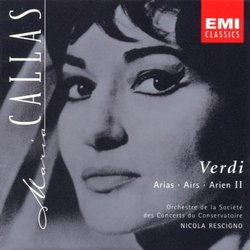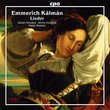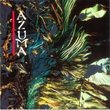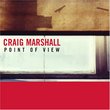| All Artists: Giuseppe Verdi, Nicola Rescigno, Monte Carlo Conservatory Concert Society Orchestra, Maria Callas Title: Verdi: Arias, Vol. 2 Members Wishing: 0 Total Copies: 0 Label: Capitol Original Release Date: 1/1/1964 Re-Release Date: 1/20/1998 Genre: Classical Styles: Opera & Classical Vocal, Historical Periods, Modern, 20th, & 21st Century Number of Discs: 1 SwapaCD Credits: 1 UPC: 724356646124 |
Search - Giuseppe Verdi, Nicola Rescigno, Monte Carlo Conservatory Concert Society Orchestra :: Verdi: Arias, Vol. 2
 | Giuseppe Verdi, Nicola Rescigno, Monte Carlo Conservatory Concert Society Orchestra Verdi: Arias, Vol. 2 Genre: Classical
This collection encompasses music which, for the most part, did not figure in Callas's stage repertoire. The opening scene from Otello Act 4 partially fulfills one's fantasies of what a Callas Desdemona might have been lik... more » |
Larger Image |
CD DetailsSynopsis
Amazon.com This collection encompasses music which, for the most part, did not figure in Callas's stage repertoire. The opening scene from Otello Act 4 partially fulfills one's fantasies of what a Callas Desdemona might have been like. Excerpts from Aroldo e Don Carlo, however, find the soprano on shakier ground with thin, effortful high notes, but her raw-nerve response to words and dramatic mood remains as potent as ever. As always, Nicola Rescigno works overtime creating an orchestral context for which Callas can soar, but is hampered by a watery, unidiomatic orchestra. Still and all, the Callas legacy would be poorer without these selections. --Jed Distler. Similar CDs
|
CD ReviewsCALLAS'S VOCAL PROBLEMS OBVIOUS, BUT SO IS THE ARTISTRY lesismore26 | Chicago, Illinois USA | 06/27/1999 (4 out of 5 stars) "This 1963 Verdi recital does not find Callas in the relatively secure vocal condition she was in for the previous Verdi recital in 1958, but there are some great things here nevertheless. She creates a very somber, dark, and reflective Desdemona in the almost twenty minute scene which includes the "Salce, Salce" and the "Ave Maria". Since this music is written for the most part in the middle of the voice, Callas has for the most part no problems with extreme top notes. Moreover, she creates a very unusual effect on certain notes by softening them and tapering them into silence. The first "Aroldo" aria has an exciting opening, but Callas' voice turns squally and wobbly in the climaxes. The second "Aroldo" aria, however, comes off much better, with a "Nabucco"-like scene that includes an explosive opening, a cavatina, and a rousing cabaletta. A few sour top notes notwithstanding, Callas sings this with the tension, command and authority that was hers in her best days. The "O Dan Fatale" from "Don Carlo" is plunged into with a tremendous show of vocal force, and is sung at white heat throughout. The final aria, that of the Queen in "Don Carlo" is, to me, the only real failure on the entire recording. Callas' voice by this time simply did not have the sustaining power in the top register to make this aria work. No, this is not vocally prime Callas, but it is Callas in full command of her interpretative powers, and with the exception of the final selection, puts this music across in her own very unique and individual fashion." 1962 Classic Callas Rudy Avila | Lennox, Ca United States | 11/09/2005 (5 out of 5 stars) "Maria Callas was the champion soprano of the EMI label in the 50's and early 60's, spanning the period of her supremacy in the world's opera scene. By the time of this recording in 1962-1963, she was already an experienced singer with a wealth of roles under her belt. The voice here is sturdy, mature, full of beautiful pianissimi but shows signs of wear and tear and even notes that are willed more than naturally produced. Verdi heroines were not a problem for Callas, for most Verdi operas were influenced by bel canto, a repertoire Callas excelled in. She never performed the role of Desdemona in Verdi's Otello. Here we are treated to the final act arias " Mi parea. M'ingiunse do coricarmi... Mia madre aveva una povera ancella" otherwise known as The Willow Song. Followed by "Pingea Cantando" and "Ave Maria"- Desdemona's final arias before Otello does her in. The lush singing she performs here is indeed a fantasy of what her Desdemona would have sounded like. Callas had the right voice for Desdemona but never got around to performing it, although her rival Reneta Tebaldi shined as a superb Desdemona in the 50's, singing opposite tenor Franco Corelli. The arias from the early opera Aroldo pose some difficulties for Callas, especially because by this time her coloratura of her youthful days had fallen into decline. But all in all it is beautifully sung and breathtaking to hear. The aria of Queen Elisabeth Di Valois from Don Carlos is exceptionally good and aptly dramatic, but also lacks the graceful ease of her youth. Eboli's aria "O Don Fatale" is sung expressively and dramatically, her voice raising high above the orchestra. It is actually a mezzo soprano aria but a soprano can do wonders with it and Callas does. No, this is not Callas captured in her glorious prime - late 40's, 50's. This is the older Callas. In 1964 she returned to the Met to sing Tosca opposite Tito Gobbi in a Franco Zefferelli production. This moment appears in a film. That Tosca most explicitly demonstrates how Callas's voice had become ruined through years of singing too many dramatic roles in a particularly voice-killing manner. There are better Callas recordings out there and this EMI recording of Verdi arias should not be your first exposure to Callas. There is an earlier 1958 album- Verdi Arias Volume 1, and Callas is in better shape in that one. On that one she sings Verdi's Lady Macbeth and Abigaille from Nabucco in outstanding fashion. When hearing Callas recordings, always check out her earlier works, the earliest possible and the legendary EMI recordings of the 1950's including her Tosca, Norma, Medea, Lady Macbeth, Aida, Traviata, Lucia and Anna Bolena.
" |

 Track Listings (7) - Disc #1
Track Listings (7) - Disc #1



